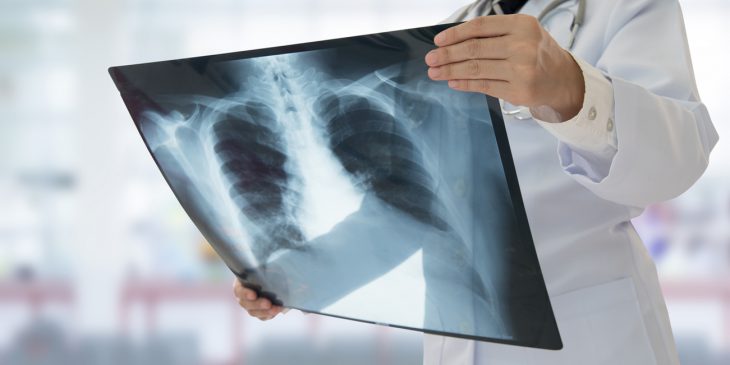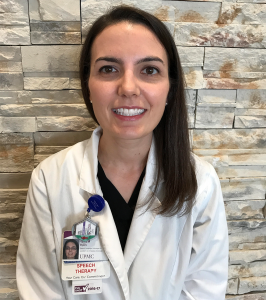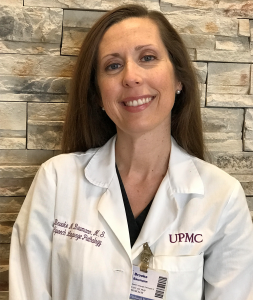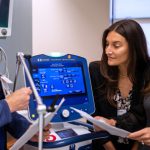A study led by researchers from UPMC and the University of Pittsburgh aimed to minimize the risk of postoperative aspiration – food and liquid entering the airway – in the lung transplant population.
The goals were to determine the frequency of aspiration, assess how accurately speech-language pathologists can evaluate for aspiration in these patients at the bedside, and develop a standardized swallowing assessment protocol to improve care after lung transplantation.
Complications from gastroesophageal reflux have been extensively studied in the lung transplant population, leading to interventions for management postoperatively to prevent devastating complications, as well as long-term effects that may result in the development of rejection.
Oropharyngeal dysphagia is also increasingly recognized in this population, and speech-language pathologists can play a vital role in minimizing aspiration risk and associated complications in the postoperative period.
Brooke Baumann and Sara Byers, senior speech-language pathologists from the UPMC Department of Otolaryngology and Division of Speech-Language Pathology, discussed their findings, which were recently published in The Annals of Thoracic Surgery.
What were the key findings?
A. Approximately 321 single- or double-lung transplant patients were referred for a swallowing evaluation by a speech-language pathologist postoperatively. All patients received a bedside swallowing evaluation and more formal instrumental swallow testing, either in radiology or with otolaryngology using a flexible nasoendoscope passed through the upper airway. We found that 67 percent of patients had food/liquid entering the airway during formal instrumental swallow testing. One of the significant findings was that 62 percent of patients demonstrated no immediate sensory response to food/liquid entering the airway, such as a cough or throat clear.
Of the 67 percent of patients found with food/liquid entering their airway, 41 percent presented with an entirely normal bedside swallowing evaluation. This suggests the speech-language pathologist’s bedside swallowing evaluation does not provide sufficient information to safely recommend a diet, and that more formal instrumental swallowing testing is required.
What is the significance of these findings?
A. Our study provides more support to the research in this area and is generally consistent with the work previously published at Duke University that first identified oropharyngeal dysphagia following lung transplant. The significance of our findings at UPMC is that they support the use of our systematic protocol that is now mandated by the UPMC Lung Institute as a standard of practice.
Our approach now is for speech-language pathologists to evaluate all lung transplant patients with a bedside swallowing assessment and instrumental testing prior to the patient resuming eating and drinking.
Are there clinical applications that can be applied in the next few years?
A. Based on our findings, our standardized protocol continues to be used to assess all patients who undergo single- and double-lung transplantation at UPMC. Clinical implications in the next few years may include identification of other patient characteristics that may increase risk of postoperative dysphagia, and refining our swallowing rehabilitation approach with this population. Preoperative education is also helpful in this population so patients know what to expect during their recovery.
Other study authors included Tamara Wasserman-Wincko, Dr. Libby Smith, Dr. Bridget Hathaway and Dr. Jonas Johnson, all from the UPMC Department of Otolaryngology; Dr. Norihisa Shigemura, Dr. J.W. Awori Hayanga and Dr. Jonathan D’Cunha, all from the UPMC Department of Cardiothoracic Surgery; and Dr. Jay Bhama from the University of Iowa Health Care.











